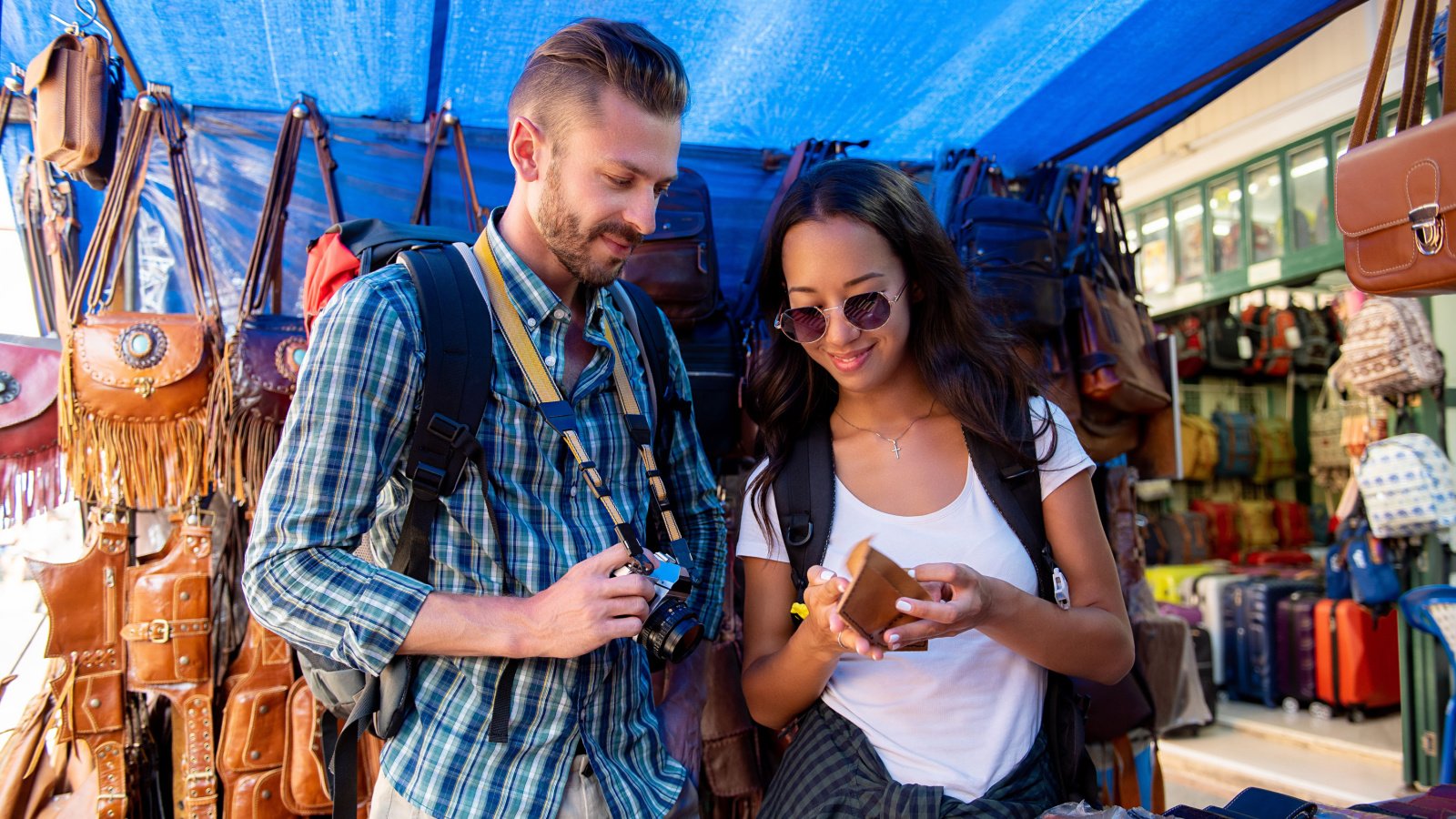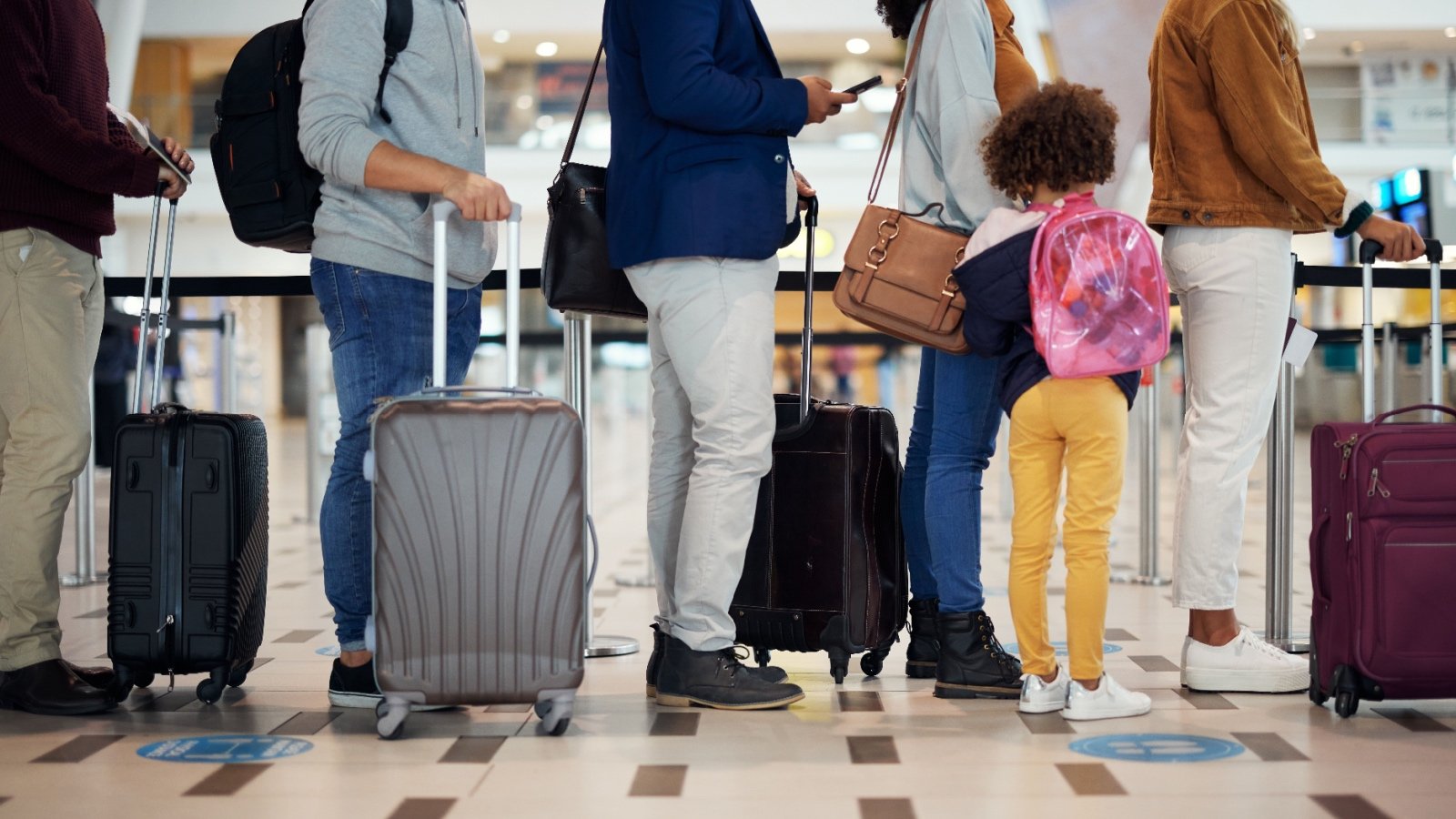Cultural differences often manifest in subtle yet significant ways, especially in behaviors that may be perfectly acceptable in one country but frowned upon in another.
For tourists visiting the United States, understanding these nuances can make the difference between a pleasant trip and a series of uncomfortable encounters.
Certain actions, while innocent to foreign visitors, can quickly result in the disapproval of American hosts. This guide examines the behaviors that Americans might find off-putting, offering insights for travelers to navigate social situations in a positive and safe way.
Ignoring Queues

Many Americans value order and efficiency, especially when waiting in line. Tourists who skip ahead or ignore the queue can quickly draw ire. It’s seen not just as an inconvenience but as a blatant disrespect for fairness.
Loud Conversations

Americans often view overly loud public conversations as intrusive. Tourists who speak at high volumes, especially in confined spaces like restaurants or public transit, are generally frowned upon. A lower tone is appreciated and considered more polite in most settings.
Littering

Environmental consciousness is a growing concern across the United States. Tourists who litter not only harm the environment but also disrespect the local community’s efforts to maintain cleanliness. Proper disposal of waste is crucial and highly respected.
Tipping Poorly

In the U.S., tipping is not just a courtesy but an essential part of many service employees’ incomes. Tourists who fail to tip appropriately may be perceived as stingy or ignorant of local customs. A standard tip is generally expected to be 15-20% of the total bill.
Disregarding Local Customs

Americans appreciate when visitors show interest and respect towards their local traditions and norms. Tourists who blatantly disregard these practices can seem disrespectful or offensive. Learning about and adhering to local customs is seen as a sign of respect.
Invasive Photography

Taking photos without permission, especially of people, is considered invasive and rude. While capturing memories is encouraged, Americans value privacy and personal space. Tourists should always ask before photographing individuals, particularly in casual or private settings.
Over-negotiating

In American retail culture, prices are generally fixed, and haggling is not customary except in specific markets. Tourists who attempt to negotiate prices in standard retail environments may be viewed as impolite or misinformed. It’s important to respect the pricing as displayed.
Not Adhering to Dress Codes

Ignoring dress codes at specific venues like churches, upscale restaurants, or clubs can make tourists stand out negatively. Americans value appropriate attire based on the setting. Observing and adhering to dress codes shows respect for the venue and its patrons.
Joking About Sensitive Topics

Humor that touches on race, religion, or personal issues is risky and often unwelcome. Americans tend to take these subjects very seriously, and inappropriate jokes can cause discomfort or offense. It’s best to steer clear of sensitive topics in conversations.
Blocking Sidewalks

Tourists who stop suddenly to take photos or consult maps can block busy city sidewalks. This behavior can frustrate locals who are trying to get around. Keeping to the side of the walkway when stopping is considered more courteous.
Wearing Shoes Indoors

In many American households, wearing shoes indoors is frowned upon as it can bring dirt and germs into the home. Tourists should be aware of the host’s preferences and often may be asked to remove shoes upon entering. Respecting this practice demonstrates good manners.
Excessive Bargaining

Bargaining isn’t as widely accepted in the United States as it is in other countries. Attempting to bargain where it is not customary can be seen as disrespectful or ignorant. Recognizing and respecting the cultural norms regarding pricing keeps social interactions smooth.
Ignoring Personal Space

Personal space is highly valued in the U.S., and invading it can make people uncomfortable. Tourists should be mindful not to stand too close to others in lines or public areas. Respecting personal space is considered basic etiquette.
Speaking Only in a Foreign Language

While multilingualism is celebrated, tourists who speak loudly in their native language exclusively can sometimes alienate those around them. Efforts to use English, especially in transactions or requests, are generally appreciated. It helps in fostering better understanding and service.
Misusing American Flags

The American flag is a powerful national symbol, and mishandling it can be seen as disrespectful. Tourists should avoid using the flag as apparel or for decorative purposes inappropriately. Understanding and respecting national symbols is important in the U.S.
Complaining About Portion Sizes

America is known for its large portion sizes in restaurants. Tourists complaining about too much food can seem ungrateful or wasteful. It’s more acceptable to simply take leftovers away if the portion is too large.
Not Respecting Wildlife

Approaching or feeding wildlife is risky and often illegal in many parts of the U.S. Americans take the safety of their natural habitats seriously, and tourists should follow suit. Observing wildlife from a safe distance ensures both personal safety and the well-being of the animals.
Making Political Statements

Americans hold diverse political views, and unsolicited political comments can spark unintended conflicts. Tourists discussing politics might unintentionally offend or alienate. It’s wise to keep political opinions private unless in a suitable setting.
Not Using Crosswalks

Jaywalking, or crossing the street outside of designated crosswalks, is illegal in many U.S. cities. Tourists ignoring this rule can endanger themselves and disrupt traffic. Using crosswalks shows respect for local laws and safety protocols.
Excessive Public Display of Affection

While public displays of affection are common, overly intimate behaviors can make bystanders uncomfortable. Americans generally prefer more subdued expressions of affection in public spaces. Respecting this social norm helps maintain comfort for everyone.
Asking Personal or Intrusive Questions

Asking strangers deeply personal questions about their income, age, or marital status is considered impolite. American social etiquette favors more general small talk when meeting someone new. Sticking to neutral topics can prevent awkward situations and ensure a pleasant interaction.








